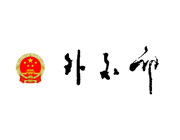


African Members of FOCAC
- Algeria
- Angola
- Benin
- Botswana
- Burkina Faso
- Burundi
- Cabo Verde
- Cameroon
- Central Africa
- Chad
- Comoros
- Congo
- Cote d'Ivoire
- Congo(Kinshasa)
- Djibouti
- Egypt
- Equatorial Guinea
- Eritrea
- Ethiopia
- Gabon
- Gambia
- Ghana
- Guinea
- Guinea-Bissau
- Kenya
- Lesotho
- Liberia
- Libya
- Madagascar
- Malawi
- Mali
- Mauritania
- Mauritius
- Morocco
- Mozambique
- Namibia
- Niger
- Nigeria
- Rwanda
- Sao Tome and Principe
- Senegal
- Seychelles
- Sierra Leone
- Somalia
- South Africa
- South Sudan
- Sudan
- Tanzania
- Togo
- Tunisia
- Uganda
- Zambia
- Zimbabwe
- The Commission of the African Union
African Union
(Updated March 2018)
【Establishment】The African Union replaced the Organization of African Unity established on 25 May 1963. The Organization of African Unity adopted on 9 September 1999the Sirte Declaration at the fourth Extraordinary Session of the OAU Assembly of African Heads of State and Government, deciding to establish the African Union (AU). In July 2002, the African Union officially replaced the Organization of African Unity.
25 May and 9 September have been celebrated as “Africa Day” and “African Union Day“ respectively, to commemorate the establishment of the Organization of African Unity and the African Union.
【Objectives】The Constitutive Act of the African Union set the objectives of the African Union as: To achieve greater unity and solidarity between the African countries and Africans; To defend the sovereignty, territorial integrityand independence of its Member States; To promote peace, security, and stability on the continent; To accelerate the political and social-economic integration of the continent; To promote democratic principles and institutions, popular participation and good governance; To promote and protect human and peoples’ rights; To promotesustainable development at the economic, social and cultural levels; To promote pan-Africa cooperation in all fields of human activity to raise the living standards of African peoples; To coordinate and harmonize the policies between the existing and future Regional Economic Communities for the gradual attainment of the objectives of the Union; To promote and defend African common positions on issues of interest to the continent and its peoples; To encourage international cooperation, establish the necessary conditions which enable the continent to play its rightful role in the global affairs.
The African Union functions in accordance with the following principles:sovereign equality and interdependence among Member States of the Union; respect of borders existing on achievement of independence; peaceful co-existence of Member States; non-interference by any Member State in the internal affairs of another;establishment of a common defense policy for the African Continent; peaceful resolution of conflicts among Member States of the Union; prohibition of the use of force or threat to use force among Member States of the Union; respect for democratic principles, human rights, the rule of law and good governance;respect for the sanctity of human life, condemnation and rejection of impunity and political assassination, acts of terrorism and subversive activities;participation of the African peoples in the activities of the Union;condemnation and rejection of unconstitutional changes of governments; the right of the Union to intervene in a Member State pursuant to a decision of the Assembly in respect of grave circumstances, namely: war crimes, genocide and crimes against humanity; the right of Member States to request intervention from the Union in order to restore peace and security; promotion of gender equality;promotion of social justice to ensure balanced economic development.
【Membership】The African Union has 55 members: Algeria, Egypt, Ethiopia, Angola, Benin, Botswana, Burkina Faso, Burundi, Equatorial Guinea, Togo, Eritrea, Cabo Verde, Gambia, Republic of the Congo, Democratic Republic of the Congo, Djibouti, Guinea, Guinea-Bissau, Ghana, Gabon, Zimbabwe, Cameroon, Comoros, Cote d’Ivoire, Kenya, Lesotho, Liberia, Libya, Rwanda, Madagascar, Malawi, Mali, Mauritius, Mauritania, Mozambique, Namibia, South Africa, Niger, Nigeria, Sierra Leone, Senegal, Seychelles, Sao Tome and Principe, Swaziland, the Sudan, Somali, Tanzania, Tunisia, Uganda, Zambia, Chad, Central African Republic, “Sahrawi Arab Democratic Republic”
【Leaders】Paul Kagame, rotating Chair of the African Union, was elected in July 2017 and took office in January 2018. Moussa Faki Mahamat, Chairman of the African Union Commission, former Foreign Minister of Chad, was elected in January 2017 for a four-year term.
【Headquarters】The African Union’s Headquarters are located in Addis Ababa, capital of Ethiopia. Official Website: http://www.au.int .
【Organizations】1. The Assembly of the African Union. 2. The Executive Council.3. The African Union Commission. 4. The Pan-African Parliament. 5. The Peace and Security Council (PSC). 6. New Partnership for Africa’s Development (NEPAD). 7. The Economic, Social and Cultural Council. 8. The Court of Justice. 9. The Financial Institutions.
【Major Activities】As of January 2018, 30 African Union Summits have been held.
On 30 to 31 January 2015, the 24th African Union Summit was held in Addis Ababa, Ethiopia, under the theme “Year of Women Empowerment and Development Towards Africa’s Agenda 2063”. Issues on women empowerment, Ebola crisis and regional security were discussed. President Mugabe of Zimbabwe was elected as Chairperson of the African Union. Agenda 2063 was adopted.
On 14 to 15 June 2015, the 25th African Union Summit was held in Johannesburg, South Africa, under the theme “Year of Women Empowerment and Development Towards Africa’s Agenda 2063”. Issues on Africa’s peace and development, fight against terrorism, women’s rights and development, creation of African Centers for Disease Control and Prevention were discussed. The Summit adopted the First Ten Year Implementation Plan of Agenda 2063 and launched the Continental Free Trade Area negotiations.
On 30 to 31 January 2016, the 26th African Union Summit was held in Addis Ababa, Ethiopia, under the theme “African Year of Human Rights with Particular Focus on the Rights of Women”. Issues on human rights protection, women’s rights, regional peace and development were discussed.
On 17 to 18 July 2016, the 27th African Union Summit was held in Kigali, Rwanda, under the same theme “African Year of Human Rights with Particular Focus on the Rights of Women”. Issues on women’s rights, fight against terrorism and all-Africa electronic passport were discussed. Election of a new chairperson was postponed to the next Summit as a result of the non-attainment of the two-thirds majority by all candidates.
On 30 to 31 January 2017, the 28th African Union Summit was held in Addis Ababa, Ethiopia, under the theme “Harnessing the Demographic Dividend Through Investments in Youth”. Issues on youth, institutional reform of the AU, African Free Trade Area and the readmission of Morocco were discussed. Moussa Faki, Chad’s former Foreign Minister, was elected as the Chairman of the African Union. The Summit also launched the temporary headquarters of the African Centers for Disease Control.
On 3 to 4 July 2017, the 29th African Union Summit was held in Addis Ababa, Ethiopia, under the same theme “Harnessing the Demographic Dividend through Investments in Youth”. Issues on education, health and employment of youth were further discussed. The Summit agreed to expedite the institutional reform process and accelerate the building of the Continental Free Trade Area.
On 28 to 29 January 2018, the 30th African Union Summit was held in Addis Ababa, Ethiopia, under the theme “Winning the Fight against Corruption: A Sustainable Path to Africa’s Transformation”. The Summit launched Africa’s Anti-Corruption Year and reviewed reports on institutional reform of the AU and other strategic issues. The Summit agreed to launch the Single African Air Transport Market, facilitating intra-continental mobility of people and goods.




